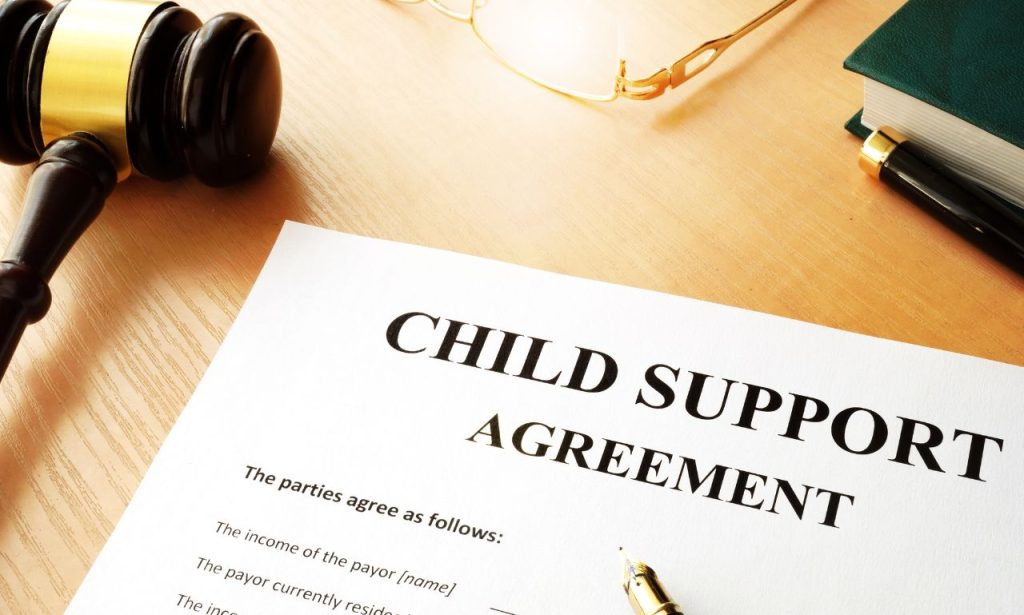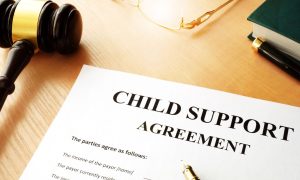Life doesn’t always unfold predictably, and managing child support is one area where unpredictability often strikes hardest. When a parent owing back child support dies, the situation becomes even more complex. You’re left wondering: What happens to back child support if the parent dies? This question has far-reaching implications for custodial parents and children relying on financial support, especially when it comes to securing a stable future. In this article, we’ll address everything you need to know about back child support when a parent passes away, navigating legal aspects, survivor rights, and what you can do to protect your family’s interests.
Understanding Child Support Obligations
Definition of Child Support

Child support is more than just a monthly financial contribution; it’s a legal obligation that non-custodial parents have towards their dependent children to provide for their needs. This includes essentials like education, health care, food, clothing, and general well-being. The support ensures that children continue to receive consistent care, regardless of their parents’ relationship status.
Child support obligations are typically defined in a child support agreement or a court-ordered child support arrangement. These obligations are enforceable by law, meaning that failure to meet them can lead to significant legal consequences. The primary goal of child support payments is to maintain the standard of living and well-being of the involved children.
Importance of Back Child Support
Back child support—sometimes called arrears or child support arrearage—refers to overdue payments that a non-custodial parent failed to pay on time. These missed payments accumulate over time, becoming a debt that the law takes seriously. The custodial parent and children often depend on these payments for daily expenses, and the absence of this support can lead to significant financial hardship.
The importance of back child support goes beyond finances; it symbolizes a parent’s responsibility and commitment to their child’s well-being. This obligation doesn’t simply vanish, even in death, as the law tends to prioritize the child’s right to be supported. The duty of child support reflects the responsibility towards the original child or children, ensuring that their needs are met.
Impact of a Non-Custodial Parent’s Death on Support Orders
Termination of Support Obligations
When a non-custodial parent passes away, many people think that child support obligations end automatically. This assumption is only partially true. Regular ongoing support payments may no longer be required since the parent is no longer alive to generate income. However, back child support, or arrears, is a different story. The obligation to pay back child support does not automatically terminate upon death. It becomes part of the deceased parent’s estate, which means creditors—including the custodial parent seeking support—can make claims during the probate process.
The probate estate includes all estate assets such as real estate, bank accounts, personal property, retirement accounts, and any other assets held by the deceased parent. Back child support is considered a priority debt, and the custodial parent has the right to claim these arrears from the probate estate.
Surviving Children’s Rights
The death of a parent doesn’t dissolve the child’s right to be financially supported. Surviving children have certain rights, which can include collecting unpaid child support from the deceased parent’s estate. Children remain the primary beneficiaries, and their needs should be addressed even if the non-custodial parent is no longer alive. The surviving custodial parent can make legal claims to ensure these rights are fulfilled.
In some cases, life insurance benefits may also provide financial relief. If there was a provision for life insurance in the divorce decree or child support agreement, the proceeds can be used to support the dependent children. It is advisable to consult with child support lawyers to understand whether life insurance proceeds can be considered part of the estate or used to fulfill child support obligations.
Collecting Back Child Support from a Deceased Parent’s Estate
Role of the Probate Process
Probate is a legal process that deals with the distribution of a deceased person’s assets. When a non-custodial parent passes away, any unpaid child support becomes part of their outstanding debts, which must be addressed during probate. Executors of the estate are responsible for ensuring that all valid claims—including back child support—are paid before distributing the remaining assets to beneficiaries.
The probate process involves gathering the deceased person’s assets, paying off debts (including back child support), and distributing the remaining estate assets to heirs or beneficiaries. Estate assets could include cash in bank accounts, real property, intangible property, and other valuable possessions. The probate estate is used to satisfy outstanding obligations, including child support arrears.
Filing Claims Against the Estate
If you’re a custodial parent owed back child support, it’s crucial to file a claim against the deceased parent’s estate during the probate process. This claim gives you a legal avenue to collect unpaid support. The court will consider the claim, and if valid, the owed amount may be paid from the estate’s assets. This is where having proper documentation of the unpaid child support amount comes in handy.
It’s essential to act promptly because probate often involves multiple creditors, and the estate’s assets can be limited. Filing your claim as early as possible can improve the chances of receiving the owed amount. Consulting with child support attorneys can be beneficial in ensuring that your claim is properly documented and filed.
Financial Options for Children Following a Parent’s Death
Survivor Benefits from Social Security
In some cases, children may qualify for Social Security survivor benefits. If the deceased parent worked and paid into Social Security, their children might be eligible to receive monthly payments that help cover living expenses. Survivor benefits can be a crucial financial lifeline, especially when other support options are limited. To learn more about Social Security survivor benefits, visit the official SSA website.
Survivor benefits can help provide for the dependent children of a deceased non-custodial parent, but they do not replace court-ordered child support obligations. These benefits are often considered an additional source of financial support rather than a substitute for unpaid child support.
Inheritance Rights
Children may also have inheritance rights, depending on state laws and whether the non-custodial parent left a will. If there’s no will, children may still be entitled to a portion of the estate through intestate succession laws. It’s advisable to work with an estate attorney to explore whether the deceased parent’s assets can be used to cover unpaid child support.
Inheritance laws vary by jurisdiction, and it is essential to understand the specific child support laws in your state. In some cases, children may be entitled to a family allowance from the estate, which could help cover their financial needs. An estate lawyer can help determine if inheritance rights apply and how they can be used to cover child support arrears.
Legal Rights of the Custodial Parent
Seeking Enforcement of Support Orders
The custodial parent has the right to enforce support orders, even after the non-custodial parent’s death. Seeking enforcement involves taking legal action to make sure that unpaid child support is collected from the deceased parent’s estate or other assets. Enforcement is crucial in ensuring that children receive the financial support they are legally entitled to.
Custodial parents may also seek assistance from Family Law professionals to understand their legal options and pursue enforcement of support orders. Child support lawyers can guide parents through the process of filing a claim against the probate estate and taking other necessary actions to protect the rights of the child in question.
Potential Legal Actions to Protect

Navigating the legal landscape can be challenging, but taking certain actions can help protect your child’s rights. Filing claims promptly, documenting all communications and payment records, and engaging with legal professionals are some steps that custodial parents can take to secure back child support. Courts generally prioritize the best interests of the child, which includes ensuring financial support is provided.
Conclusion
The death of a non-custodial parent doesn’t mean the end of financial support obligations—especially when it comes to back child support. You have legal avenues to pursue the support your child needs, from filing claims against the estate to exploring Social Security survivor benefits. Understanding the legal processes involved and seeking professional guidance can make all the difference in securing your child’s future.
Consulting with child support attorneys, estate lawyers, and Family Law professionals can help you navigate the complexities of probate and ensure that your child’s rights are protected. By taking timely action, documenting unpaid child support, and understanding your legal options, you can help secure the financial future of your minor child or children.
ALSO READ: What are Good Reasons to Get Full Custody
FAQs
No, child support arrears generally cannot be forgiven after the death of a non-custodial parent. The debt becomes part of the estate and must be settled during probate, meaning that claims for unpaid support can still be made.
If the deceased parent has no assets, collecting back child support can be challenging. You may explore options like Social Security survivor benefits if the deceased parent was eligible.
The timeframe to file a claim against an estate can vary by state. It’s usually best to file as soon as possible to increase your chances of receiving payment, as the estate assets will be distributed to creditors and heirs during probate.
Survivor benefits can help financially, but they do not replace the owed back child support. The arrears remain a debt of the deceased parent’s estate, and you may still be able to collect through probate.
Yes, hiring a lawyer is advisable. An attorney can help you navigate probate, file claims correctly, and ensure you understand your rights and obligations in your specific jurisdiction.





